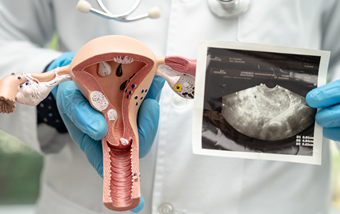When we talk about a ‘failed’ cycle of IVF, the devastation is suffocating, the anger and unfairness of it all come crashing down, as you realise you will not get your miracle this time. In addition, the crippling costs of treatment can vastly reduce your options, fortunately, abc ivf is working hard to make IVF more affordable, to give more people a chance.
Personally, I found our first IVF cycle fail almost expected. I bounced back quickly, I wanted to get going again immediately. However, when the second cycle failed, it had a much more devastating effect on me and I struggled to cope. I had completely believed that we would be successful that time. By the third cycle fail, I didn’t cope very well at all. My mental health deteriorated and I became poorly.
After that, we had a ‘forced’ break. We had to wait for me to heal, mentally, so we didn’t do another treatment cycle for seven months. During that time, I learnt about mental health and how to help myself. The thought of going for cycle four terrified me. I worried that if it failed again I would have some kind of breakdown, which I wouldn’t be able to recover from. So I needed to know how to help myself, I needed to understand what I could do to cope with recurrent treatment failures.
How we coped
There seemed to be three clear elements to my survival and I learned to ensure that these were accessible following any future infertility treatment plans. These were:
- Time and space to grieve
- A break, away from our house and hometown
- A plan, to move forwards
I needed the first two parts immediately and at the same time, the third part would come slightly later but was still as necessary.
People who have never had to deal with infertility may struggle to understand what there is to grieve about. However, infertility comes with losses stacking upon losses. From the loss of the ability to conceive naturally, to the loss of identity and the innate desire to bear children. Losses from watching friends and family have children and feeling alienated from social circles, to losses through miscarriage and stillbirths. The gift that infertility keeps giving, is grief.
By the time you get to a failed cycle, those losses have built up and whilst there isn’t a funeral to attend, the failure of an IVF cycle is just as real as any other grief. The hopes and plans for that little embryo, the dreams for it that you had - you carried it for a time and it existed, the loss is real.
The reality is, that we should grieve. There should be tears and anger and feelings of unfairness, there should be time to wallow – as only through this can we move forward. If we bottle up our emotions, they come back to hurt us later on.
So following the failure of an IVF cycle, I coped by taking time to grieve, to think about what’s happened. I cry and I feel devastated, with no agenda other than to feel how I’m feeling, no trying to block it out or ignore it. My husband and I take a break together as soon as we can, it’s important for me to have that time away. It doesn’t have to be expensive, just away from our house and the area we live in. Some time to be together, to walk, to talk or not, to find comfort in each other and come to terms with the news. Once we feel ready we can begin to make future plans (whatever they may be), but that comes after we have had time with the loss.
Seeing a counsellor can also help greatly to understand the mix of emotions being felt. Every clinic should offer a counselling service as standard.
Coping with IVF failure is an individual process, but remembering that grief is a normal reaction, which takes time, can go a long way to eventually finding how to move forward.
IVF failure is hard, each time it feels like it’s taken another little bit of your soul with it. But there are techniques to make getting through it, easier and no matter how slowly, just keep putting one foot in front of the other.




